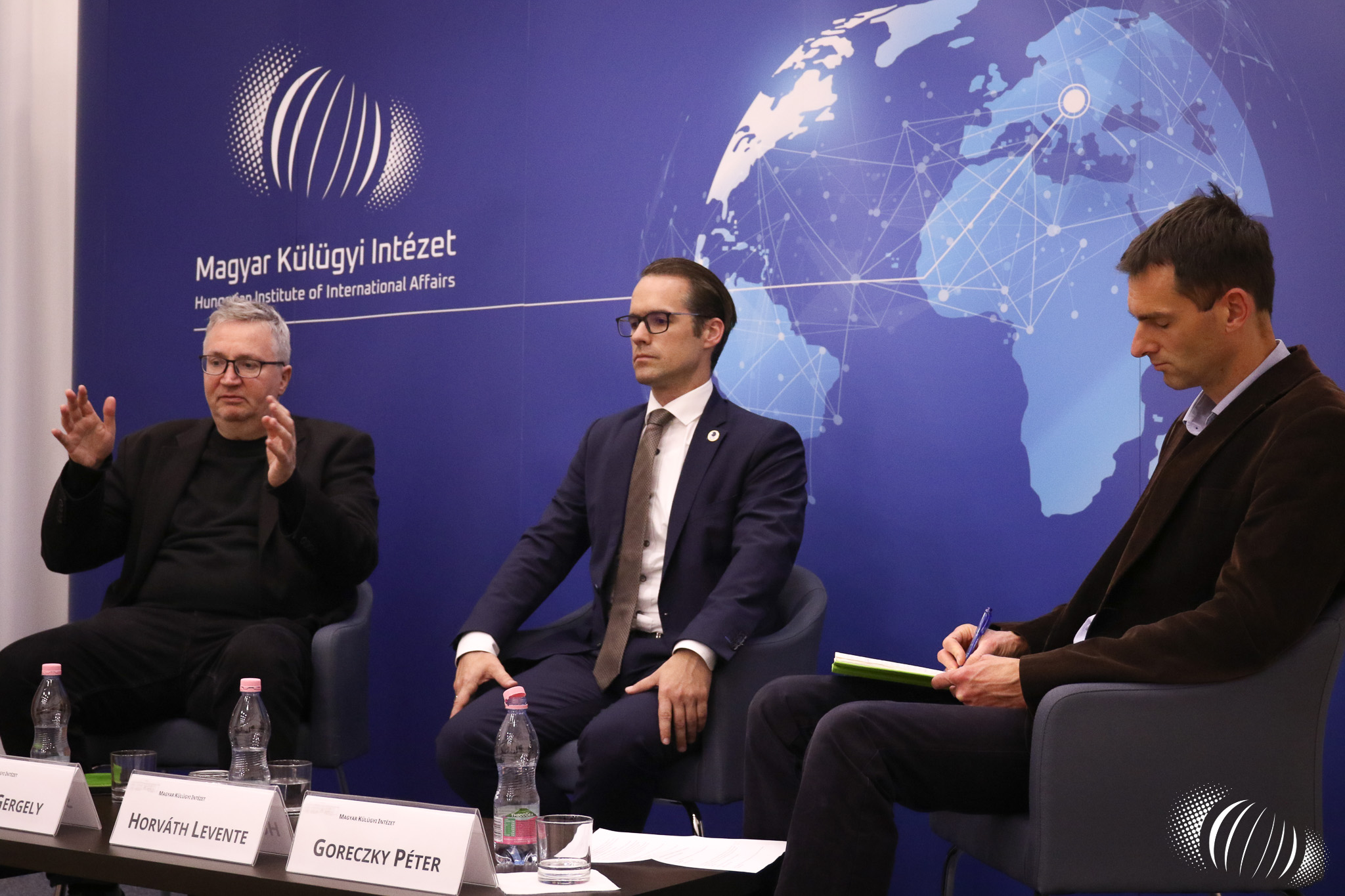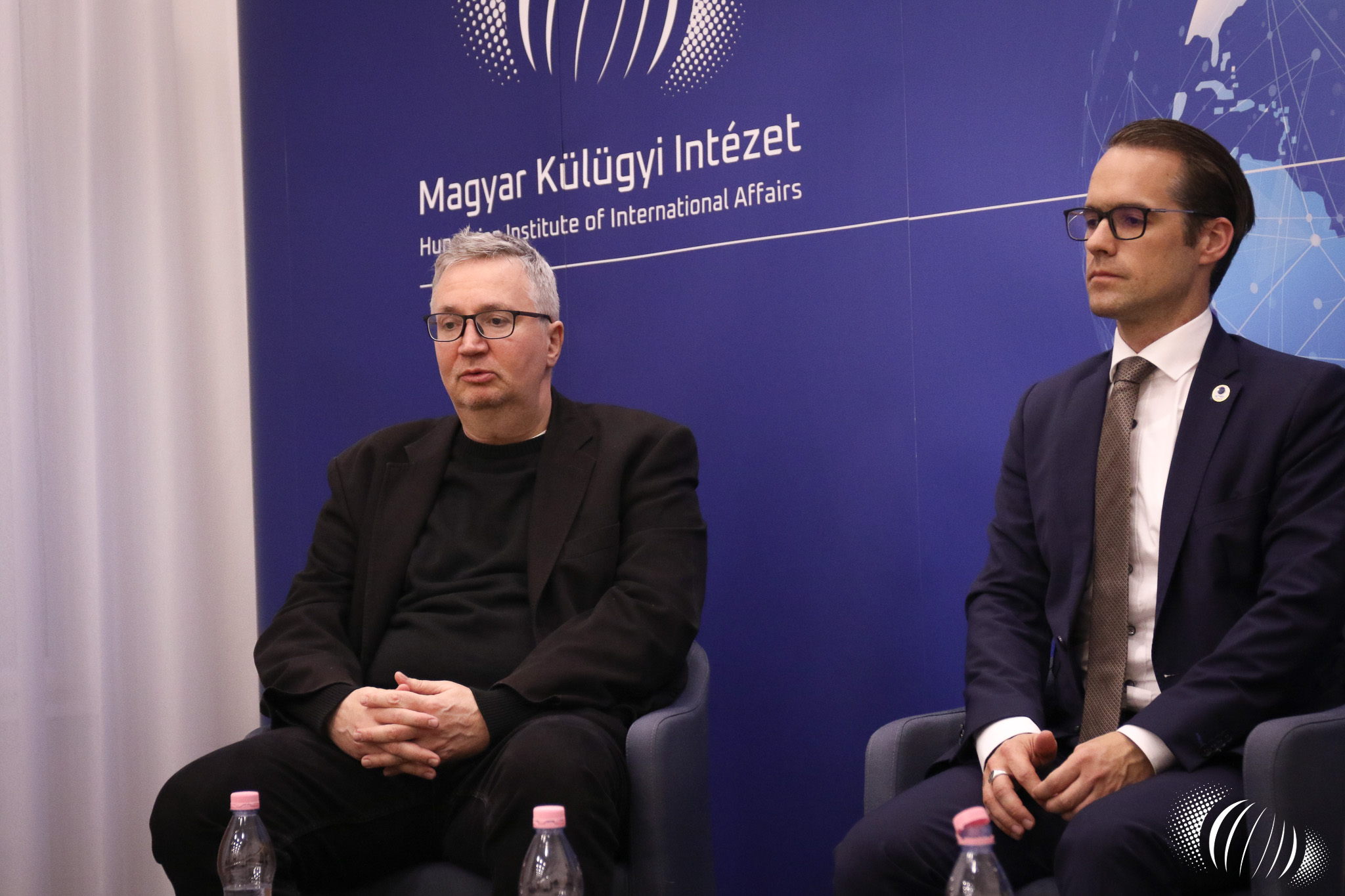On 19 November 2024, the Hungarian Institute of International Affairs (HIIA) organised a roundtable discussion entitled “The Great Balancing Act: How relations between the EU and China might change?”. Levente Horváth, Director of Eurasia Center and Gergely Salát, Senior Research Fellow of HIIA participated as panellists, while the discussion was moderated by Péter Goreczky, Senior Analyst of HIIA.
At the beginning of the discussion, the experts recalled the events that have shaped EU-China relations in recent years. They stressed that the relationship has become ideologized since the United States had started to view China as a geopolitical rival. This perception had spilled over to Europe and was reinforced by Beijing’s refusal to join the Western sanctions against Russia. The deterioration of ties has also been fuelled by China’s long period of isolation during the Covid pandemic, as the lack of face-to-face meetings has led to the contraction of communication channels. Following the introduction of tariffs on electric cars made in China, the EU and the Asian country are now on the brink of a tariff war.
As for the outcome of the US presidential elections, experts pointed out that during his first presidency, Donald Trump had not involved US allies in his campaign against China to the same extent as Joe Biden. If he goes on with this strategy in his second term, it could provide an opportunity for Europe to move towards strategic autonomy and shape its policy towards China following its own interests. In any case, there is a willingness for economic cooperation with China at the member state level, as demonstrated by the business delegations travelling to China and the competition for investment from Chinese electric car manufacturers. At the same time, China is also a competitor for a significant number of European companies, so it is unlikely that the EU will be able to speak with one voice regarding China any time soon.






